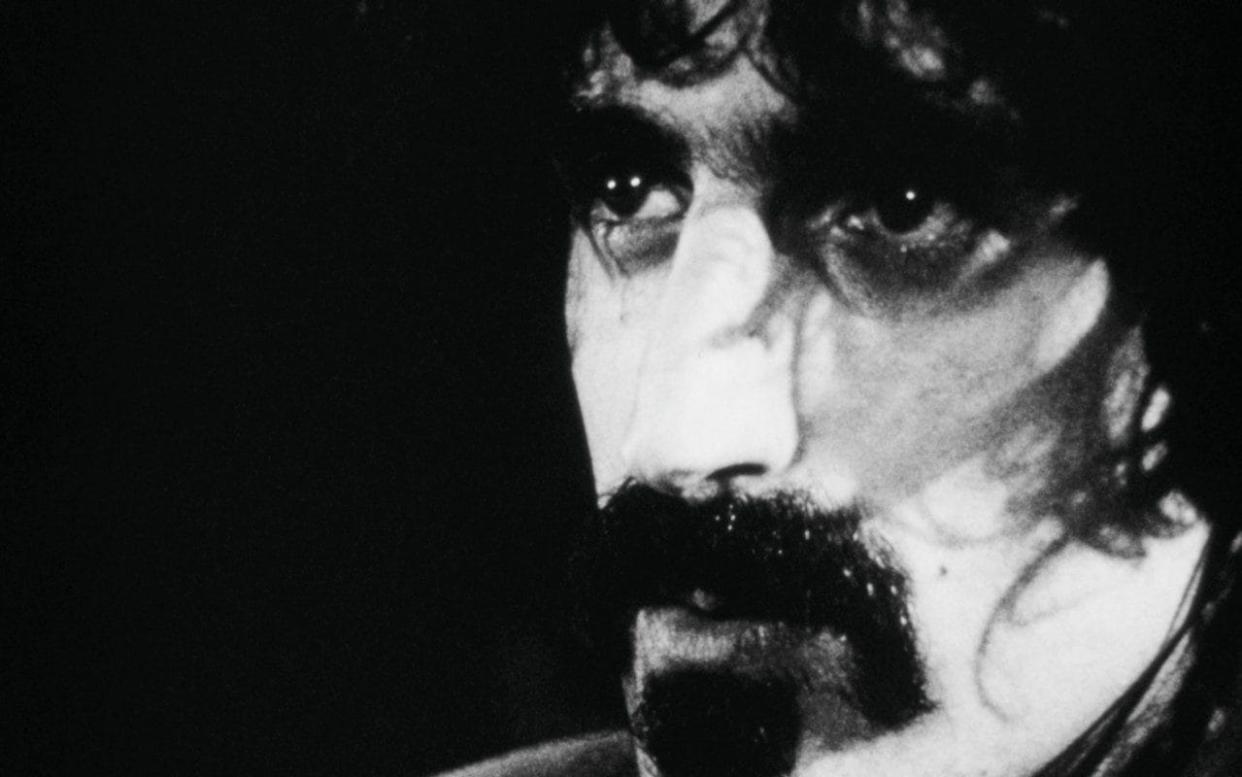Zappa, review: a myth-busting look at the Sixties’ strangest star

Dir: Alex Winter. No cert, 129 mins
Frank Zappa’s attempt to blow up his high school aged 15 didn’t pan out, but the attitude of radical hostility lit the fuse for his music career. With his unruly black hair and bristling handlebar moustache, he had the air of a truculent strongman. The work he put out was wild, difficult and unapologetic, whatever the fashion of the day – usually radio-friendly pop-rock which he couldn’t have been less interested in peddling.
An assortment of myths are exploded in Zappa, the baggily engaging docu-portrait directed by Bill & Ted star Alex Winter. It follows a loosely chronological brief, bookended by the last appearances of Frank’s career, when he knew he was dying of prostate cancer in 1991–2. This psychedelic rocker is still vaguely associated in the public consciousness with Sgt Pepper-style LSD trips, but Zappa didn’t take drugs, or even drink. His summary of the late 1960s in Laurel Canyon was unimprovable: “If you don’t do drugs, people think you’re weird.” Even so, he was militantly in favour of decriminalisation, and also fought off censorship with a fervour that would put Prince or Springsteen to shame.
Zappa flirted with fame in strange, semi-accidental ways; his ranting lyrical style and Edgard-Varèse-influenced experimentation were hardly catnip to the mainstream, or record executives. His sole Top 40 hit was Valley Girl, a 1982 moment in the sun with his 14-year-old daughter Moon Unit, which popularised the phrase even if it only peaked at number 32. Off the back of it, he was invited to do a guest spot on Saturday Night Live, with Bill Murray, Dan Aykroyd and John Belushi doing spaced-out druggie routines while he stonewalled as a straight man. He didn’t like that.
Winter delivers a rounded piece of fan worship without sanding down his subject’s edges. Zappa’s wife Gail, who died in 2015, is stoical in her taped interviews about the infidelities he barely tried to hide. “She grumbles from time to time, but she’s my wife,” is Frank’s take. Zappa spent most of 1972 in a wheelchair, after being pushed off-stage at London’s Rainbow Theatre by an audience member’s jealous boyfriend. His band thought he was dead, and the experience shook him to the core – he says, in typically acerbic fashion, that he found out who a lot of his friends were. A certain reclusiveness calcified here, it seems – or perhaps his perfectionism about his output was refocused.
He spent much of his last decade, and those Valley Girl royalties, paying to have everything recorded in the best possible circumstances – by the LSO under Kent Nagano in 1983, say. Winter’s film deserves a lot of credit for appreciating the full, intrepid range of Zappa’s music, though penetrating the leathery mystery of his personality is perhaps a tall order. Archival magic, at least, is never far away – there’s a half-minute or so of Zappa under an umbrella, standing on a New York street corner in the rain, which I could watch all day.
Available on VOD now


